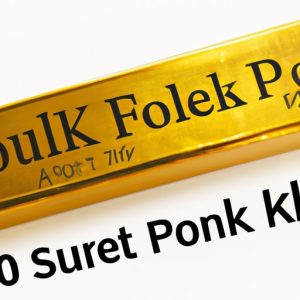In the ever-fluctuating economic landscape, diversifying your retirement savings is crucial. Transferring your 401k to gold is a strategic move to safeguard your investments against market uncertainties.
But, how can you make this switch without incurring penalties?

Key Takeaways
- Gold IRAs offer a stable and secure investment option.
- Understanding the 401k to gold IRA rollover process is essential to avoid penalties.
- Several reputable companies can assist in a smooth transition.
Why Consider Gold for Your 401k?
Gold has been a symbol of wealth and stability throughout history. It’s a tangible asset that doesn’t depreciate in value during economic downturns, making it an attractive option for investors.
Benefits of Investing in Gold
- Hedge Against Inflation: Gold retains its value, even as the purchasing power of currency decreases.
- Diversification: Adding gold to your portfolio spreads risk across different asset classes.
- Market Stability: Gold tends to perform well during market volatility.
For more insights on the benefits of gold investments, visit APMEX Gold IRA Review – Unlocking the Power of Precious Metals for Retirement.
The Top Benefit of a 401k to Gold IRA Rollover
The primary benefit of a 401(k) to gold transfer is the potential for diversification and preservation of wealth. And here’s why:
Most traditional 401(k) plans are invested in a combination of stocks, bonds, mutual funds, and other paper assets. By choosing to roll over part of your 401(k) into a Gold IRA, you’re adding physical precious metals—such as gold, silver, or platinum—to your retirement portfolio. This type of diversification can serve as a strategic move, especially since gold has long been considered a safeguard against inflation, currency fluctuations, and economic instability.
One of the key benefits of including gold in your retirement strategy is its historically low correlation with traditional assets like equities and fixed-income investments. When the stock market is underperforming or inflation is rising, gold has often held its value or even appreciated—helping to offset losses elsewhere in your portfolio.
That said, investing in physical gold isn’t without its drawbacks. Unlike stocks and bonds, gold doesn’t provide ongoing income through dividends or interest. There are also additional factors to consider, such as storage fees, insurance costs, and potential price swings in the precious metals market. Carefully evaluating these aspects is crucial before making a decision to invest.
The Rollover Process
Transferring your 401k to a Gold IRA involves a series of steps. It’s vital to follow the legal procedures to ensure a penalty-free transition.
Step 1: Choose a Reputable Gold IRA Company
Research and select a company that specializes in Gold IRAs. Look for transparency, customer service, and industry reputation. Companies like Goldco and American Hartford Gold are renowned for their services. For reviews on top Gold IRA companies, refer to this article to learn how to transfer your IRA to gold.
Step 2: Open a Self-Directed IRA
A Self-Directed IRA allows you to invest in a variety of assets, including gold. Learn more about this IRA type here.
Step 3: Fund Your Gold IRA
You can fund your Gold IRA through a rollover or transfer. Ensure compliance with IRS rules to avoid taxes and penalties.
Step 4: Select Your Gold
Choose the type and quantity of gold you want in your IRA. Diversify with coins and bullions for optimal benefits.
For a visual guide on the rollover process, watch How to Move Your 401(k) to Gold Without Penalty video on YouTube.
Understanding the Rules and Regulations
Adherence to IRS rules is paramount in avoiding penalties during the transfer. Familiarize yourself with the contribution limits, types of gold allowed, and storage requirements.
IRS Approved Gold
The IRS has specific criteria for the purity and type of gold allowed in IRAs. Ensure your selections meet these standards.
Storage Requirements
Gold in IRAs must be stored in approved depositories. Understand the storage options and fees involved.
For more information on rules and regulations, visit Best Places to Buy Gold and Silver Online.
Seeking Professional Guidance
Navigating the complexities of a 401k to Gold IRA transfer requires expertise. Seeking advice from financial advisors and tax professionals is recommended. Explore this guide for more tips on a smooth transition.
For additional visual resources, check out How To Move a 401k To Gold Without Penalty and Here’s How to Roll Over Your 401(K) Into a Gold IRA.
Evaluating Gold IRA Companies
Criteria for Selection
When choosing a Gold IRA company, consider the following factors:
- Customer Reviews: Look for companies with positive feedback and testimonials.
- Fees and Charges: Understand the fee structure to avoid any hidden costs.
- Industry Reputation: Opt for companies recognized for their integrity and service.
For a comprehensive review of Gold IRA companies, refer to this article.
Top Gold IRA Companies
Several companies have established themselves as leaders in the Gold IRA industry. Here are a few noteworthy ones:
- Goldco: Known for its customer service and educational resources.
- American Hartford Gold: Praised for its competitive pricing and buyback policy.
- Augusta Precious Metals: Renowned for its transparent practices and dedicated support.
For more details on selecting gold and silver, read our article: Can I buy Gold with my Fidelity 401k account?
Tax Implications and Penalties
Understanding the Tax Structure
Transferring your 401k to gold is a tax-deferred process, meaning you won’t pay taxes until you make withdrawals. However, early withdrawals before the age of 59½ may incur penalties.
Avoiding Early Withdrawal Penalties
To avoid penalties, ensure that the funds are deposited into the Gold IRA within 60 days of withdrawal. Additionally, you can only perform one rollover in a 12-month period.
For more insights on tax implications, refer to the Can a Self Directed IRA Hold Gold Coins article.
Diversifying Your Gold Investments
Types of Gold Investments
Diversification within your Gold IRA is essential. Consider a mix of the following:
- Gold Bullions: These are pure gold bars or coins, valued by weight.
- Gold ETFs: These are exchange-traded funds that track the price of gold.
- Gold Mining Stocks: These represent shares in gold mining companies.
For a visual representation of diversification strategies, watch How To Move a 401k To Gold Without Penalty.
Balancing Risk and Reward
Striking the right balance between different gold assets can optimize your risk-reward ratio. Consulting a financial advisor can help tailor a strategy to your individual needs.
Frequently Asked Questions
1. Can I hold physical gold in my IRA?
Yes, but it must be stored in an IRS-approved depository. Personal possession of gold in an IRA is not allowed.
2. Are there any restrictions on the type of gold I can invest in?
Yes, the IRS specifies that gold must be 99.5% pure. Approved forms include certain bullion coins and bars.
3. How does a Gold IRA differ from a traditional IRA?
A Gold IRA allows for the inclusion of precious metals, whereas a traditional IRA is limited to stocks, bonds, and mutual funds.
4. Can I transfer other retirement accounts to a Gold IRA?
Yes, other accounts like the 403(b) and TSP can also be rolled over into a Gold IRA.
5. What are the storage options for gold in an IRA?
Gold must be stored in an IRS-approved depository. Options include segregated storage, where your assets are kept separately, or commingled storage, where assets are mixed with others.
For more FAQs and detailed answers, visit Google and do a quick search on the topic.
Final Thoughts
Transferring your 401k to gold is a significant financial decision. It offers a hedge against market volatility and inflation, providing a safety net for your retirement savings. By understanding the process, rules, and regulations, and seeking professional guidance, you can make a smooth and penalty-free transition to secure your financial future.
For an in-depth discussion on this topic, watch relevant videos on YouTube, there are many to choose from.
